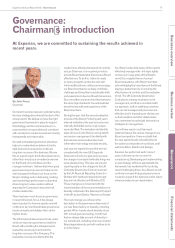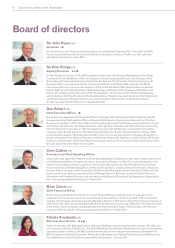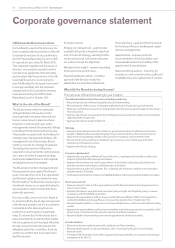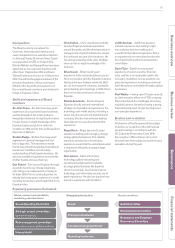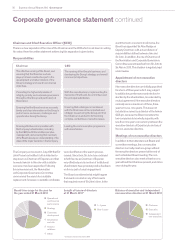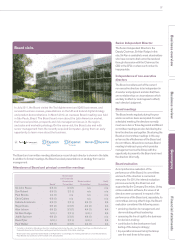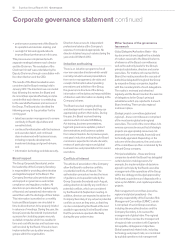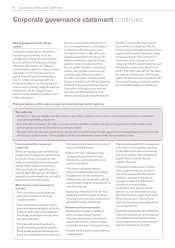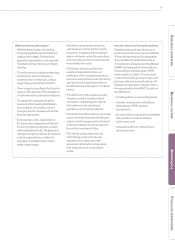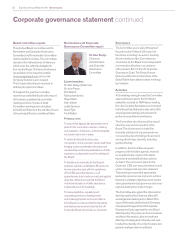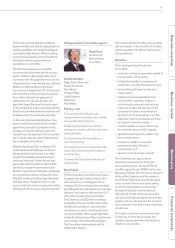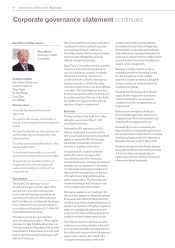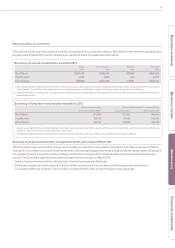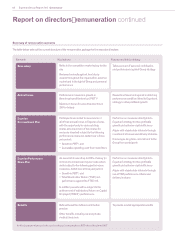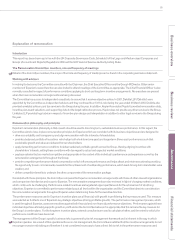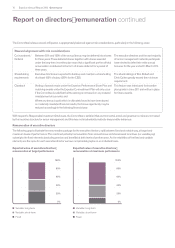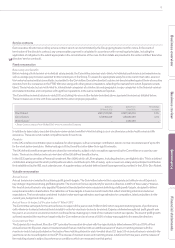Experian 2012 Annual Report Download - page 63
Download and view the complete annual report
Please find page 63 of the 2012 Experian annual report below. You can navigate through the pages in the report by either clicking on the pages listed below, or by using the keyword search tool below to find specific information within the annual report.
61
Governance Financial statementsBusiness reviewBusiness overview
What monitoring takes place?
• Well-developed system of planning,
incorporating Board approval of Group
strategy and budgets. Performance
against the agreed plan is subsequently
monitored and reported at each Board
meeting.
• The achievement of business objectives,
both financial and non-financial, is
assessed on a monthly basis, using a
range of key performance indicators.
• There is regular reporting to the Board in
respect of the exercise of the delegations
of authorities to the principal subsidiaries.
• The global risk management policy
provides for the ongoing identification
and escalation of accepted, new and
emerging risks to management and the
Board as appropriate.
• Each business unit is responsible for
the day-to-day management of risk and
for ensuring that risk exposure remains
within established limits. The global risk
management policy outlines, for business
units, the expectations in relation to
escalation of identified risks, control
weaknesses or gaps.
• Certificates are provided annually by
each business and key function leader
to confirm compliance with the Group’s
system of internal control, Group policies,
and corporate governance and corporate
responsibility processes.
• The Group’s internal audit function
provides independent testing and
verification of risk management policies,
processes and practices across the Group
and reports to the Audit Committee on
the effectiveness of the system of internal
control.
• The Audit Committee reviews a variety
of reports on risk, including material
risk reports, material litigation reports,
information security reports and
regulatory and compliance reports.
• The Audit Committee performs an annual
review of the effectiveness of the Group’s
systems of risk management and internal
control and receives an annual report on
the controls over relevant risks.
• The internal audit programme and
methodology is aligned to the risk
categories and makes use of risk
assessment information at a business
level in planning and conducting its
audits.
Internal control over financial reporting
Detailed policies and procedures are in
place to ensure the accuracy and reliability
of financial reporting and the preparation
of consolidated financial statements. A
comprehensive Group Accounting Manual
(‘GAM’), including details of International
Financial Reporting Standards (‘IFRS’)
requirements, is in place. The document
is owned by the Group’s finance team and
has been rolled out across the Group. All
Experian companies are obliged to follow
the requirements of the GAM. The aims of
the GAM are to:
• provide guidance on accounting issues;
• allow for consistent and well defined
information for IFRS reporting
requirements;
• provide uniform measures for quantitative
and qualitative measures of Group
performance; and
• increase the efficiency of the Group’s
reporting process.


